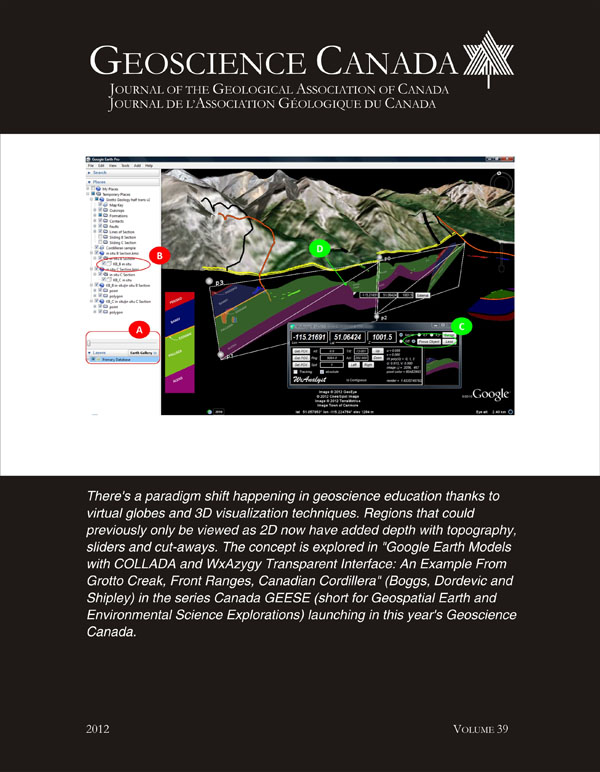Published 2012-10-23
How to Cite
Abstract
Earth Science Outreach in Canada takes many forms. Great programs are delivered by a multitude of individuals and organizations in a multitude of ways. And whether the reaching out is visiting your child's Grade 4 class to talk about minerals, or putting together a huge community event like Earth Sciences for Society exhibitions, these programs are driven by the recognition that youth, teachers and the public need to become more aware of complex Earth Systems, how they work and why we all need to care.
It has been noted by our international friends that what we manage to do in Canada without specific government involvement and funding is pretty amazing. This unique grass-roots community of passionate, committed people is held together by a thread of common mission and the low-tech but immensely effective work of the Canadian Geoscience Education Network (CGEN). Communicating via email, members are apprised of upcoming events, opportunities and resources and kept connected with each other. Industry's growing understanding of their own role in supporting education and outreach efforts adds dimension to this collective and has proven extremely valuable; industry partnerships will be increasingly more important to future projects.
In my own experience, Earth Science Outreach is never more effective than when these diverse components are brought together for larger projects. Sometimes born of crazy confluence of chance and adversity, these collaborations of folks from all areas of geoscience create some great learning opportunities for everyone involved.
This article describes an excursion to the remote First Nation community of Attawapiskat, northern Ontario, brought about by a collective effort of individuals and organizations, and which epitomizes the tremendous value of such collaborations.
